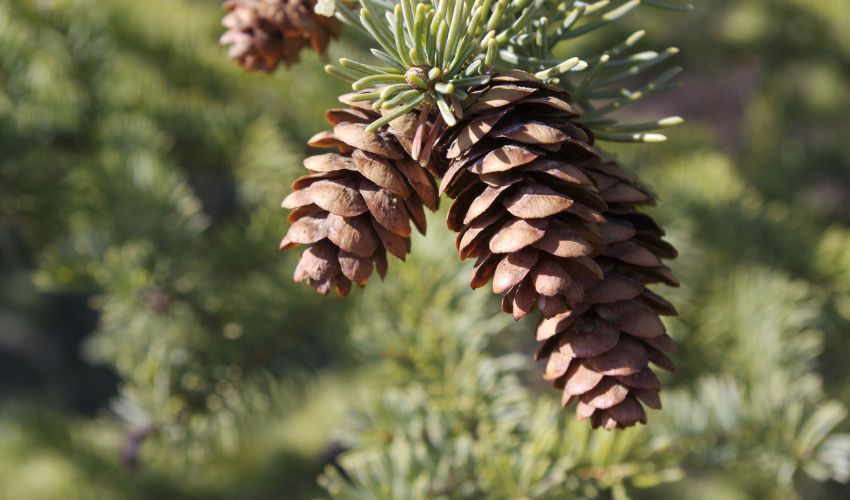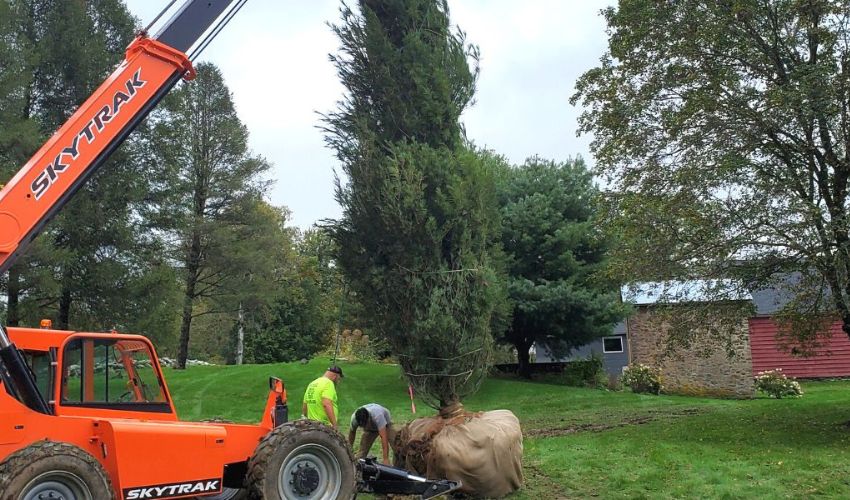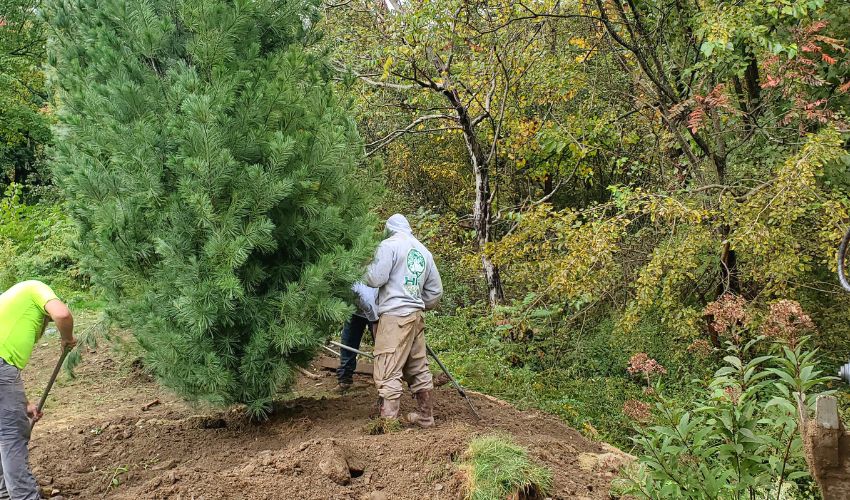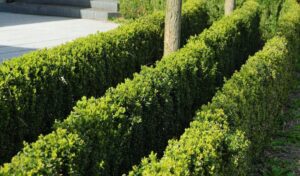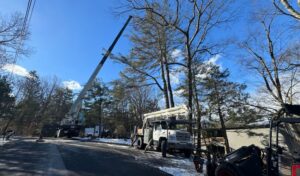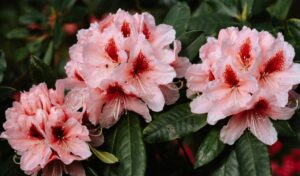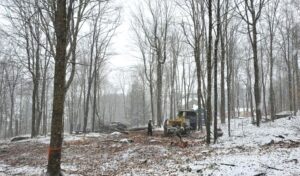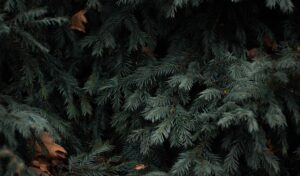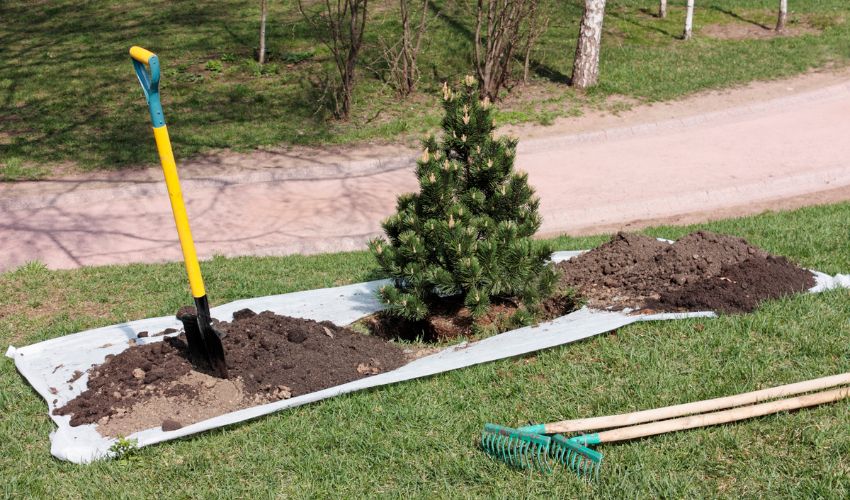
When adding new plants, trees, or shrubs to your Hudson Valley property, there are many things to consider, such as the right tree for the right place, the mature size that a plant or tree will grow to, the amount of sunlight needed, and more.
But did you know that there are ideal times to plant?
In this article, we focus on evergreens and the best time to plant them on your Hudson Valley property.
Keep reading to learn more!
What are Evergreens?
“Evergreen” is a generic term that is often used to describe conifer trees or trees that grow cones. The type of cone you may be most familiar with is a pinecone. Most conifer trees (with some exceptions, such as bald cypress trees) keep their foliage (needles) year-round.
Examples of evergreen conifers include:
- Cypress
- Juniper
- Spruce
- Pine
- Arborvitae
- Fir
- Hemlock
However, conifers are not the only evergreen trees or shrubs. There is another category called “broadleaf evergreens” which can include:
- Boxwood
- Holly
- Laurel cherry
- Olive
- Rhododendron
- Viburnum
- Azalea
- Inkberry
The opposite of an evergreen tree or shrub is a deciduous tree or shrub, one that loses its leaves or needles each year.
When Should You Plant Evergreens?
There are two ideal planting seasons for all plants and trees: spring and fall. While many people think of planting evergreens in the spring, we recommend you do most of your planting in the fall.
Why plant in fall?
There are several reasons to add new trees and shrubs to your Hudson Valley property in the fall.
Root Establishment
Planting evergreens and other trees in the fall allow the tree to establish roots underground before spring arrives. In the spring, plants and trees are focused on growth above ground and on producing new leaves or needles. When planted during the autumn months, tree roots have time to spread, which allows them to stabilize and also gives them better access to water, oxygen, and nutrients from the soil.
Preferable Weather
Fall has cooler temperatures, which not only make it more comfortable for you to work in your yard but is also less of a shock for the trees that you plant. The cooler weather also slows evaporation, leaving your trees better hydrated.
Fall tends to be a rainier season, which helps your tree acclimate to its new location without you having to manually water it as often (although new trees will always need plenty of water, no matter when they are planted).
Less Stress
You may not think of trees as something that experiences stress, but things like drought, salt, insect infestations, improper pruning, and damage from yard tools can all cause stress to a tree.
One of those sources of stress can be the unrelenting summer sun that causes heat and drought. Giving your tree a few months to establish in the ground before exposing it to the harsh summer can be beneficial and may improve the health and longevity of your tree.
Decreased Manual Watering
Young trees will require more water than established trees no matter when they are planted, but planting trees in the fall means that you don’t have to water as much over the fall and winter months, as most trees become dormant.
Adding a layer of organic mulch around your newly planted trees will also help retain moisture, regulate soil temperature, and protect your new tree’s roots from extreme temperature changes.
Winter Interest
Evergreens, as their name implies, stay green! That means not only more color for your yard during the winter months but also places for birds and wildlife to shelter.
Evergreens work well as privacy screens or to dull the noise from a nearby street and look great when covered with freshly fallen snow.
Watch for Desiccation
Unlike deciduous trees, evergreen trees and shrubs, especially broadleaf evergreens, may suffer from something called desiccation during the winter months. Desiccation refers to the leaves or needles from a plant drying out, which is more likely to happen during the winter months thanks to dry, cold winds.
Luckily, the Plant Health Care (PHC) professionals at Hill Treekeepers have a method for preventing desiccation. It’s called anti-desiccant (or anti-transpirant) spray, and it prevents broadleaf evergreens from losing too much moisture during the winter months.
Contact us if you want to learn more about anti-desiccant treatments.
Despite the chance of desiccation (which can impact both young and mature evergreen trees and shrubs), we still recommend planting evergreens in fall when possible.
Hill Treekeepers Can Plant Your Trees
One of the services that we offer at Hill Treekeepers is tree planting as well as transplanting, which means that we can plant your trees and shrubs for you!
We can also recommend the right species of trees that would be best for the location you have in mind. Our certified arborists know which trees and shrubs do best in the Hudson River Valley and can advise you on the best trees or shrubs for your property.
Whether you want to add deciduous trees or evergreen trees, shrubs or other plants (or a variety), we can help! Call us at 914-214-7045 to discuss your tree planting options.
>> Learn more about our tree planting and transplanting services
Share this online!
Get the highest quality of tree services for residential and commercial properties in the Hudson Valley area. We look forward to working with you!
TOPICS
Recent Articles
Don't Miss the Next Update!
Join the thousands of smart Hudson Valley residents who get the monthly newsletter from Hill Treekeepers. It's full of helpful information you won't want to miss!

